Four days earlier, at 7 pm on Monday May 20th, the Panzers entered Abbeville. Before dusk General Storch had set up his new headquarters inside a school building on the northern outskirts of the town.
He always made a point of establishing new field headquarters as close as possible to the point where his next advance would begin, and the new direction for the Panzer onrush would be north, north towards the Channel ports. But as he completed inspecting his temporary new home Storch was in a state of almost uncontrollable fury, a fury which as usual he vented on Meyer.
‘They must be mad,’ he thundered, ‘completely insane. Out of their minds, Meyer!’
The High Command, General?’
Meyer straightened some papers on the desk, making a neat pile by squaring them up with the palms of his hands. He was standing up because Storch had just risen from his chair, sending it over backwards with the abruptness of his movement, but in spite of the fact that he was the victim of Storch’s tirade Meyer was in an excellent humour.
‘The people who drafted this order, Meyer.’ Storch waved the wireless message savagely. ‘All Panzer divisions are to halt temporarily on their present positions pending further instructions. Why stop when you are winning? Always go on to the end, Meyer, always go on as long as your tanks have a litre of petrol left. That is the way to win wars.’
‘I suppose General Guderian has his reasons.’
Their normal roles were almost reversed, because now it was Meyer who spoke silkily, careful to keep his voice sympathetic, but underneath he was experiencing a sense of triumph. At last the High Command was seeing the folly of this reckless onrush into the unknown. But here Meyer had overplayed his hand because Storch had a sensitive ear for voice tones and now regarded his GSO thoughtfully, his manner suddenly calm.
‘You mean General Guderian is worried about the Panzers?’
It was a subtle manoeuvre and Meyer instantly felt that he was losing ground. Everyone was aware that Guderian, the Corps Commander, was almost as great a firebrand as Storch himself, and Meyer had little doubt that Guderian was at this moment raging and fuming about the order he had been compelled to pass on to the divisional commanders. So if Storch took it into his head to dismiss Meyer from his post Guderian would completely agree with the decision – once it came out that Meyer had said Guderian wished to halt the Panzers.
‘I was referring to Army Headquarters, [3] Meyer was actually referring to the Army Group commander, General von Rundstedt, who personally sent this halt order. The conflict between the two schools of thought – those for advancing nonstop and those who preached caution – raged ferociously through the entire campaign.
of course,’ he said hastily.
But now Storch was re-reading the message and the cynical expression under the peaked cap bothered Meyer. Surely he couldn’t twist this order to his advantage? Storch threw the message down on his desk and asked Meyer to read it again, then went on speaking.
‘They probably don’t realize that we are still as fresh as when we came over the bridges at Sedan. It’s understandable, is it not, Meyer, when you think of the remoteness of Army Headquarters? I think a little reassurance would help. Send this message. Road to Boulogne open. Division ready to advance.’
‘Ready to advance?’ Meyer stared in amazement at Storch. ‘Fifty per cent of our vehicles are in desperate need of maintenance and the men have had very little sleep for over ten days.’
‘You mean half our tanks have broken down?’
Meyer swallowed. Storch knew perfectly well that he hadn’t meant that. ‘No, sir, but there may soon be breakdowns…’
‘The tanks require urgent maintenance?’ Storch’s own voice was silky now, almost a purr. ‘That’s what you mean, isn’t it, Meyer?’
‘Yes, sir.’
‘I agree. You are right, of course. It therefore becomes a matter of top priority to work on the tanks through the night.’
‘We have arranged for a night shift…’
’All the fitters, Meyer. They must all work non-stop through the night if they are capable of standing on their feet. Any fitter on the sick list who is capable of walking must immediately be put to work.’
‘But the men themselves…"
‘I expect you to supervise the operation personally. Through the night,’ he added maliciously.
Meyer screwed in his monocle, his face blank. Storch was well aware that he had been up most of last night and Meyer was a man who needed eight hours’ sleep. He’s punishing me, Meyer thought, punishing me because I dared to look pleased at the order to halt the Panzers. He waited, seeing that Storch hadn’t finished with him yet. The general picked up the order again.
‘I think we have misunderstood what lies behind this message, Meyer. It ends with the words "pending further instructions". I think I can predict that those will be for us to resume our advance, so it becomes vitally important to be ready, Meyer. Do you not agree?’
‘Yes, sir.’
‘We are now close to the jugular vein of the British Expeditionary Force – the Channel ports. Once we start moving north we shall capture Boulogne, Calais, and Dunkirk within two days, maybe even only one day. Then the British are finished.’
‘Two days?’ Meyer was stunned.
‘At the most. Now, you must hurry.’ Storch walked to the door and then turned before leaving the room. ‘And don’t forget that message, Meyer. Road to Boulogne open. Division ready to advance.’
The farmer’s name was Mandel, and without hesitation he invited them into the farmhouse, but first he asked them to hide the tank in a distant outhouse which lay about half a kilometre from the Cambrai road. Before parking Bert, Barnes and Reynolds helped Perm to walk from the tank into^the farmhouse where they lowered him into an armchair in the kitchen. Barnes was almost too exhausted to worry about other people but he did warn Mandel that it could be very dangerous for him if the Germans arrived and found them helping the British.
‘You do not worry about that,’ Mandel assured him. ‘Once the tank is hidden in that distant outhouse the Germans will never find it. As for yourselves, Etienne, my nephew, will keep watch. We can see the road for a long way in both directions, so if anything happens there will be time for you to bide in a ditch well away from here.’
This was another stroke of good luck – the fact that Mandel spoke good English. Barnes asked him where he had learned the language.
‘In your country, of course! For several years I worked as an onion-seller. I come from Brest, you see, where I was employed by the Syndicate. I used to take my bicycle on the boat over to Southampton, collect my onions from the depot and then cycle all round Hampshire and Surrey. You soon learn English that way!’
‘We’d better park the tank.’
‘Etienne will show you. You go up the track and… I will leave it to Etienne.’
As far as Barnes could see there was no sign of a telephone, so it wouldn’t be possible for Mandel to phone the Germans to tell them that they were here. Not that he thought there was any likelihood of that happening for when he looked at Mandel he felt pretty sure that he could trust him. The farmer was in his fifties, a short, heavily-built man with a strong red face and a large grey moustache which matched his great bush of hair. Even his wife, Marianne, showed no signs of alarm at the arrival of these dangerous visitors. A woman of about the same age as her husband, she wore her hair tied back in a bun and her features were shrewd and decisive. She said she would prepare a meal for them and went away before Barnes could protest. They made a formidable pair.
Читать дальше
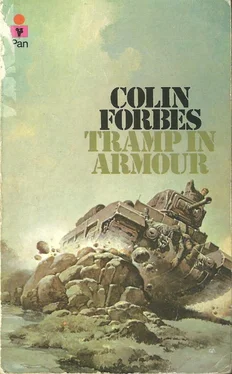

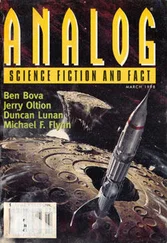

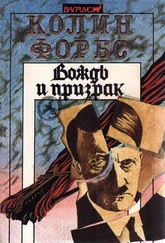
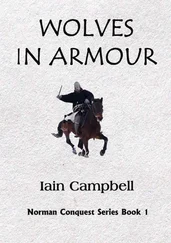

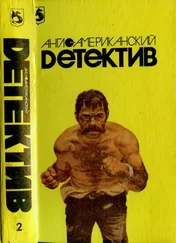
![Невилл Форбс - История Балкан [Болгария, Сербия, Греция, Румыния, Турция от становления государства до Первой мировой войны] [litres]](/books/390301/nevill-forbs-istoriya-balkan-bolgariya-serbiya-gre-thumb.webp)


